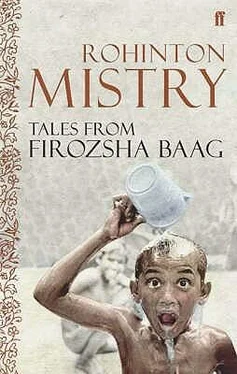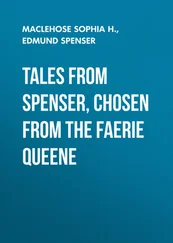Rohinton Mistry - Tales From Firozsha Baag
Здесь есть возможность читать онлайн «Rohinton Mistry - Tales From Firozsha Baag» весь текст электронной книги совершенно бесплатно (целиком полную версию без сокращений). В некоторых случаях можно слушать аудио, скачать через торрент в формате fb2 и присутствует краткое содержание. Год выпуска: 2006, Издательство: Faber & Faber, Жанр: Современная проза, на английском языке. Описание произведения, (предисловие) а так же отзывы посетителей доступны на портале библиотеки ЛибКат.
- Название:Tales From Firozsha Baag
- Автор:
- Издательство:Faber & Faber
- Жанр:
- Год:2006
- ISBN:нет данных
- Рейтинг книги:3 / 5. Голосов: 1
-
Избранное:Добавить в избранное
- Отзывы:
-
Ваша оценка:
- 60
- 1
- 2
- 3
- 4
- 5
Tales From Firozsha Baag: краткое содержание, описание и аннотация
Предлагаем к чтению аннотацию, описание, краткое содержание или предисловие (зависит от того, что написал сам автор книги «Tales From Firozsha Baag»). Если вы не нашли необходимую информацию о книге — напишите в комментариях, мы постараемся отыскать её.
Tales From Firozsha Baag — читать онлайн бесплатно полную книгу (весь текст) целиком
Ниже представлен текст книги, разбитый по страницам. Система сохранения места последней прочитанной страницы, позволяет с удобством читать онлайн бесплатно книгу «Tales From Firozsha Baag», без необходимости каждый раз заново искать на чём Вы остановились. Поставьте закладку, и сможете в любой момент перейти на страницу, на которой закончили чтение.
Интервал:
Закладка:
Mr. Karani was full of dire forebodings. He warned that it was easier to get rid of a poisonous kaankhajuro which had crawled through your ear and nibbled its way to your brain than to evict a paying guest who had been allowed into your flat.
Boman was in a quandary. He had been looking for confirmation and support. Instead, he had run full tilt into contradiction and discouragement, and wished he had never spoken to Mr. Karani. This was the problem in taking the CA’S advice. If you disagreed with it, it sat inside you like a lump of incongenial food, noisily belligerent and causing indigestion.
For a few days, Mr. Karani’s warnings rumbled and growled and gnawed away at his plan, threatening it with disintegration, while Boman vacillated and went from extremes of confidence to extremes of uncertainty. Eventually, however, it turned out to be one of those rare instances when Boman ignored the CA’S advice. He went ahead with his plan and told Kashmira he had inserted an ad in the Jam-E-Jamshed .
It was soon answered. An appointment was made, the flat was shown, and both parties were agreeable.
Then followed one and a half years of cordial coexistence with the paying guests. Boman began to feel that, for once, Mr. Karani had been exaggerating. He was tempted to pull out the pedestal from under Mr. Karani.
But the year and a half of cordial coexistence sped by and concluded abruptly when Ardesar and Khorshedbai received the notice to vacate. This notice to vacate would have far-reaching effects. It would bring new experiences into all their lives: courts and courtrooms, sleepless nights filled with paeans to the rising sun, a sadistic nose-digging lawyer for Boman, veranda-sweeping for Kashmira, signs and portents in dreams for Khorshedbai, pigeons (real and imagined) for Ardesar, thick and suffocating incense clouds for Boman and Kashmira, and finally, a taxi for Ardesar and an ambulance for Khorshedbai.
Its immediate result, however, was to make Khorshedbai emphatically declare to Ardesar that no one would peck her to pieces. For most of her life, Khorshedbai had carried at the back of her mind an image. It was a flock of crows pecking and tearing to shreds some dead creature lying in a gutter. At times the corpse was a kitten, at other times a puppy; sometimes it was even another crow. Whether she ever witnessed something of this sort or whether the image just grew out of various life experiences into a guiding metaphor, during times of adversity she would clench her teeth and repeat to herself that no one was going to peck her to pieces, she would fight back.
It was a year and a half ago that the paying guests had moved in with their meagre possessions: two trunks, one holdall, a hefty parrot cage (empty and still bearing the former occupant’s name: Pestonji Poputt), a wind-up gramophone, and one record: Sukhi Sooraj , a song of praise for the morning sun, its brittle 78-rpm shellac protected between soft sari layers in one of the trunks.
In those days, the two rooms did not stay locked. Khorshedbai would peek inside, wave to little Adil, and inquire how he was getting along. Sometimes Kashmira looked in on the elderly couple to ask if they needed anything. She noticed that two second-hand chairs and a small folding table had been added. On the table stood the cage of the deceased or disappeared Pestonji. Once, she saw Khorshedbai before the empty cage, gazing at the little swing inside. She felt a pang of compassion for the dear grey-haired lady, and imagined the burden of memories weighing heavily upon Khorshedbai’s old shoulders as she stood and remembered her beloved pet. Khorshedbai beckoned her in, viced her arm in bony fingers, and said; “So sweet, Pestonji’s whistle was, and so true.” He still appeared in her dreams when there was trouble, she said, and communicated the future in whistles she alone could interpret.
That night when Kashmira told Boman all about it, he said the old lady definitely had at least one loose screw somewhere in the upper storey.
Minor irritants between the two parties were easily taken care of. Khorshedbai requested sole use of the veranda for her morning prayers. And she did not want Kashmira to emerge during her monthly. Boman and Kashmira agreed amusedly. Khorshedbai rose at five A.M. each day and, after brushing her teeth, unmuzzled her gramophone for Sukhi Sooraj , the fervent tribute to sunrise. As part of the mutual consideration pact, Boman and Kashmira requested that it not be played till after seven o’clock.
Khorshedbai soon became a familiar sight in the building. To and from her way to the agyaari or the bazaar, and sometimes, hand in hand with Ardesar, off to feed the pigeons at Chaupatty beach. Gradually, stories reached Kashmira’s ears about the elderly couple, and how they came to be homeless at their age. Najamai from C Block stopped by whenever she uncovered something new from her numerous sources. She was concerned that Boman and Kashmira had taken strangers into their flat. So what if they too were Parsis, these days you could trust no one. It was one lesson she had learned, she said, after the murder in the fire-temple, when the dustoorji had been stabbed to death by a chasniwalla employed there. Thus Najamai made it her bounden responsibility to make known the truth, but was not really successful.
In one version, it was the result of a family feud; many years ago Ardesar had sworn never to set foot in his father’s house as long as a certain person lived there. Although soft-spoken Ardesar swearing to do or not do anything was highly improbable.
Another story went that something quite shameful had come to pass between Khorshedbai and one unnamed male occupant, a relative of Ardesar’s, and they had had no choice but to pack up and leave after the affair. But here again it was impossible to imagine prim, agyaari- going Khorshedbai with sari-covered head in any kind of liaison.
Yet another tale, and the saddest of them all, had it that the couple, after a long and arduous life of working and scrimping and saving, had managed to educate and send their only son to Canada. Some years later he sponsored them. So they got rid of their flat and went, only to find he was not the son they once knew; after a period of misery and ill-treatment at his hands they returned to Bombay, homeless and heartbroken.
Kashmira did not pay much attention to these stories. But sometimes, when she picked up the mail dropped on the veranda by the postman, she would see a letter for Ardesar and Khorshedbai from Canada. The cruel son? The return address had the same last name. But if they were mistreated in Canada, returning to Bombay made no sense. Especially since there was no flat. Sons could be ungrateful, yes, but you could not run away from it. Better to remain where at least the food and air and water were good.
Kashmira would hand over the letter with a remark about the pretty foreign stamp, hoping to elicit a comment, perhaps a clue to the writer’s identity. All Khorshedbai ever said was thanks, then she took her arm and led her in beside the cage, to tell more about the life of Pestonji.
When the doctor said yes, Kashmira was pregnant, Boman thought it was time to use the whole flat again. With two children they would need both rooms.
One day, soon after the glad tidings, he stopped Mr. Karani in the compound. More out of habit than anything else, he wanted to discuss the best way of making the paying guests leave.
“Boman dikra , what shall I tell you?” said Mr. Karani, shaking his head sorrowfully, “whatever advice can I give? If there was a kaankhajuro inside your skull, gnawing through your brain, I could say: hold a smelly chunk of mutton beside your ear, that will tempt it to come racing out on its one hundred legs. But what can I tell you about paying guests? To get rid of that problem there is no remedy except death.”
Читать дальшеИнтервал:
Закладка:
Похожие книги на «Tales From Firozsha Baag»
Представляем Вашему вниманию похожие книги на «Tales From Firozsha Baag» списком для выбора. Мы отобрали схожую по названию и смыслу литературу в надежде предоставить читателям больше вариантов отыскать новые, интересные, ещё непрочитанные произведения.
Обсуждение, отзывы о книге «Tales From Firozsha Baag» и просто собственные мнения читателей. Оставьте ваши комментарии, напишите, что Вы думаете о произведении, его смысле или главных героях. Укажите что конкретно понравилось, а что нет, и почему Вы так считаете.












